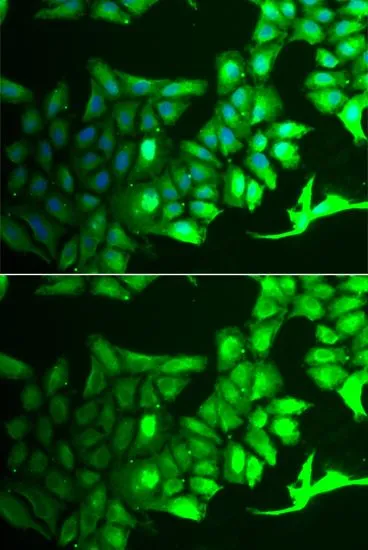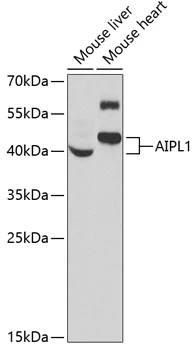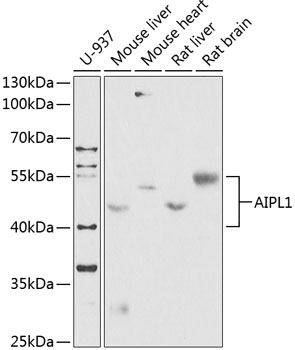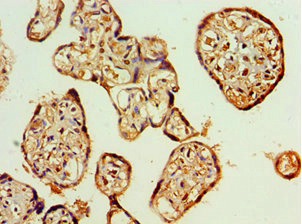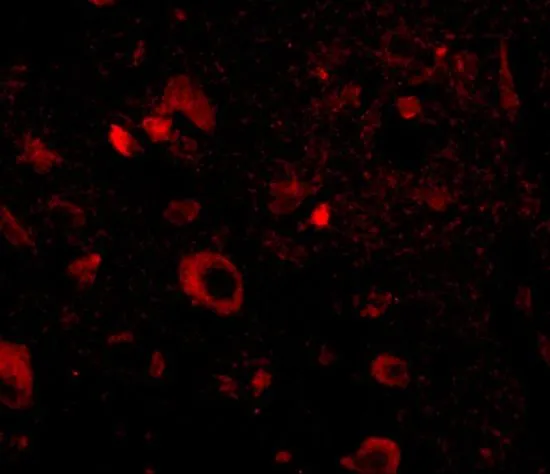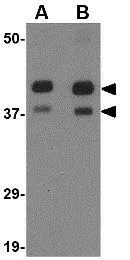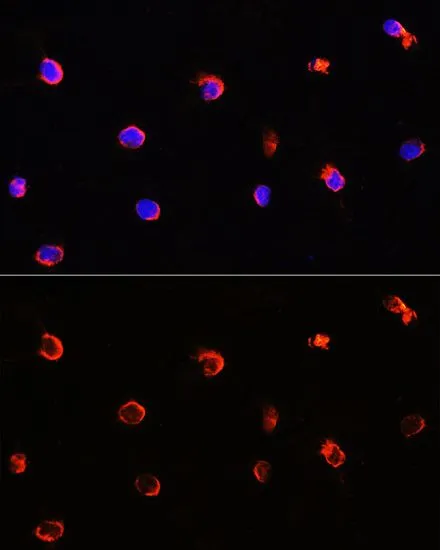
ICC/IF analysis of Y79 cells using GTX55497 AIPL1 antibody. Blue : DAPI Dilution : 1:100
AIPL1 antibody
GTX55497
ApplicationsImmunoFluorescence, Western Blot, ImmunoCytoChemistry
Product group Antibodies
ReactivityHuman, Mouse
TargetAIPL1
Overview
- SupplierGeneTex
- Product NameAIPL1 antibody
- Delivery Days Customer9
- Application Supplier NoteWB: 1:500 - 1:2000. ICC/IF: 1:50 - 1:100. *Optimal dilutions/concentrations should be determined by the researcher.Not tested in other applications.
- ApplicationsImmunoFluorescence, Western Blot, ImmunoCytoChemistry
- CertificationResearch Use Only
- ClonalityPolyclonal
- ConjugateUnconjugated
- Gene ID23746
- Target nameAIPL1
- Target descriptionAIP like 1 HSP90 co-chaperone
- Target synonymsAIPL2, LCA4, aryl-hydrocarbon-interacting protein-like 1, aryl hydrocarbon receptor interacting protein like 1
- HostRabbit
- IsotypeIgG
- Protein IDQ9NZN9
- Protein NameAryl-hydrocarbon-interacting protein-like 1
- Scientific DescriptionLeber congenital amaurosis (LCA) is the most severe inherited retinopathy with the earliest age of onset and accounts for at least 5% of all inherited retinal diseases. Affected individuals are diagnosed at birth or in the first few months of life with nystagmus, severely impaired vision or blindness and an abnormal or flat electroretinogram. The photoreceptor/pineal-expressed gene, AIPL1, encoding aryl-hydrocarbon interacting protein-like 1, is located within the LCA4 candidate region. The encoded protein contains three tetratricopeptide motifs, consistent with chaperone or nuclear transport activity. Mutations in this gene may cause approximately 20% of recessive LCA. Alternative splicing results in multiple transcript variants. [provided by RefSeq, Jan 2014]
- ReactivityHuman, Mouse
- Storage Instruction-20°C or -80°C,2°C to 8°C
- UNSPSC41116161

